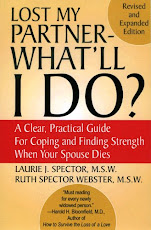
Feeling comforted by keeping some of your late spouse/partner’s possessions for a time is a common reaction for many widowed people.
There are, however, limits.
Just consider Queen Victoria, that symbol of perpetual widowhood.
When her husband died suddenly in 1861, Queen Victoria officially decreed that “mourning for the Prince consort shall be ordered for the longest term in modern times.”
According to biographer Greg King in his book, Twilight of Splendor, “Windsor (Castle) was immediately draped in black crepe; so much was used that the entire country’s supply was depleted within a day.”
King goes on to say, “Victoria created a cult devoted to the memory of her husband. The Blue Room at Windsor was to be kept ‘in its present state,’ she ordered, ‘and not be made use of in the future,’ although she herself added memorial wreaths and a bust of Print Albert.”
“For forty years to the end of her reign,” King continues, “Albert’s rooms were the scene of an incredible ritual. Each morning, a servant delivered a fresh jug of hot water to the unused washstand, as if Albert’s ghost might appear and need a shave, and laid out a change of clothes amid the fresh flowers that covered the bed; even his unused chamber pot was scoured and replaced at night.”
Too bad the mental health profession wasn’t yet up to speed in 1861. Victoria could have benefited from a little supportive feedback.
Luckily, if you find yourself scouring your late spouse/partner’s chamber pot every day, professional help is now an option.
In any case, it's okay to give yourself a little time.
Hopefully, it won't be forty years.








